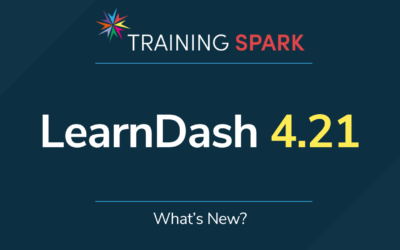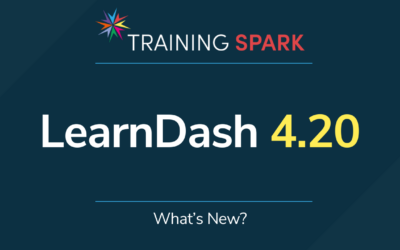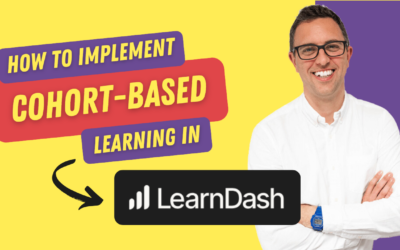As the old saying goes, “The only constant in life is change”, and the world of online learning is no different.
In the last decade, we’ve seen the rise of platforms like Udemy, LinkedIn Learning, Udacity, Teachable and Thinkific. These offer subject experts the opportunity to monetise their expertise in the form of online courses.
While these courses are often rich in useful content, they have little – if any – direct involvement from the course creator in helping the student. The course experience is linear with minimal flexibility, depth or nuance.
So in the constant fight for our attention, building a course around content only is becoming an increasingly difficult battle. People are bombarded with content day-in-day-out and if you’re building a course around content only then you’re not only competing with other online courses, but also with social media and the rest of the web.
We can see this in how online courses are often sold using heavily discounted prices, have low conversion rates-to-sale and suffer from even lower completion rates.
So if content is increasingly seen as low-value, free and easy to consume, what’s the alternative? Well we’ve long advocated that course creators need to think about the wider ‘experience’ of an online course, rather than just the ‘content’ that sits within it.
Experience as an alternative to content
‘Experience’ is concerned with the journey through a course and how a learner interacts with the material, rather than just what the material is. It is also concerned with the relationship dynamics e.g. how learners interact with other learners and the course tutor. These relationships are often missing from typical self-study elearning.
One online course format that can bring new life to your online training is cohort-based learning.
In a cohort-based course, learners study at the same time as a group. Typically they start and finish a course at the same time.
These learners could be part of the same business and be learning as a team. They could also be a number of separate individuals (who have never met each other before) who come together for the purpose of your course.
A cohort-based course generally involves two different elements:
- Live group calls, such as virtual Zoom meetings
- On-demand learning content
These elements can be used in differing proportions, depending on a number of factors, but generally would involve both. Let’s consider an example.
A typical cohort-based course format

Typically the course would run over a number of weeks. At the start of the course, there would be a live video call with all the course participants. This gives the course tutor a chance to introduce themselves, the course, the format and for the participants to meet each other.
Following the call, self-study online learning materials for the week ahead are unlocked. These materials could be in the form of videos, curated content, interactive activities or tasks to complete. Learners are encouraged to discuss key areas of the course amongst themselves by adding comments or through social media channels.
The learners are tasked with completing this before the next call in a week’s time.
When the group next meet, they then have the opportunity to discuss the training materials with the tutor. As a group, they can share their experiences, reflect on what they’ve learned and probe into any areas they may have struggled with.
Following the call, the second week of materials are unlocked, and this repeats itself for the duration of the course. The final group call may act as a ‘wash-up’ for any topics that warrant further discussion, but also as a celebration of the completion of the course.
—
So if you’re creating online courses, you may want to consider cohort-based learning as the format for your next course. This powerful format will help you create a course with the learner experience – rather than content – at the forefront of your designs.
In a future blog post, we’ll explore the benefits of cohort-based learning for both learners and course creators.
In the meantime, if you use LearnDash LMS and want an easy way to deliver high-impact cohort courses, then check out our Cohort Manager for LearnDash plugin.




0 Comments